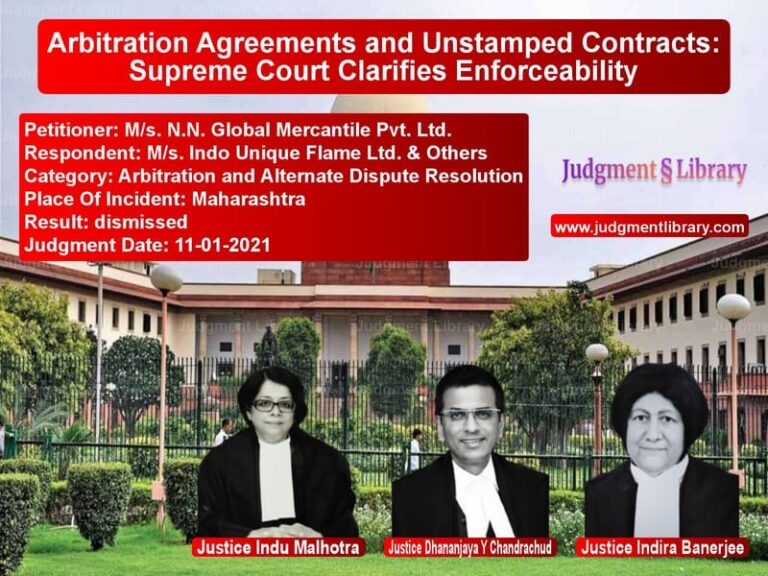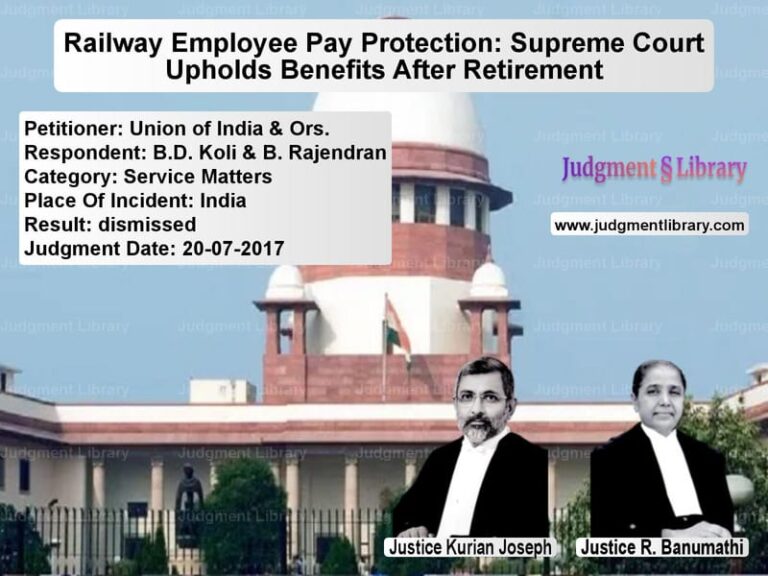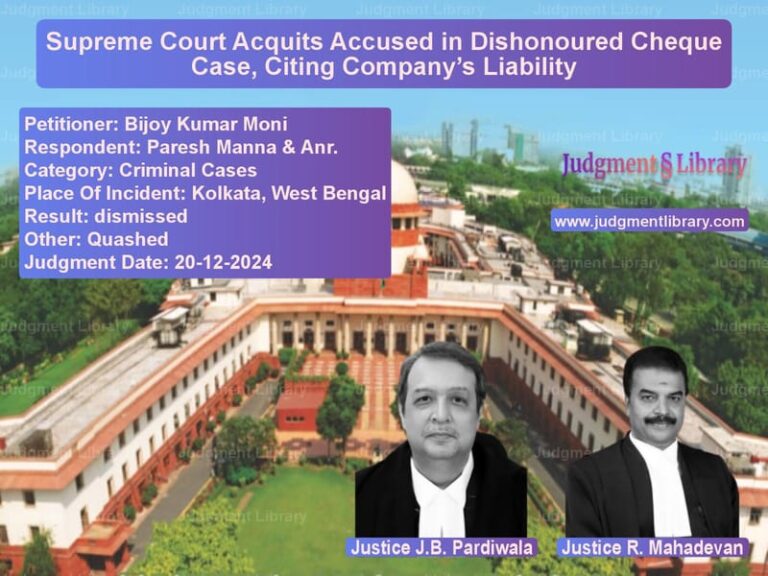Supreme Court Acquits Protestors in Kerala Public Property Damage Case
The case of Gireesan Nair & Others vs. State of Kerala revolves around the 2000 protests in Kerala against the government’s decision to delink pre-degree courses from colleges and introduce plus-two courses at the school level. The protest escalated into violence, leading to the death of a KSRTC bus conductor and damage to several state transport buses. The Supreme Court reviewed the convictions handed down by the lower courts and examined the legality of the test identification parade (TIP) used to establish the accused’s involvement.
Background of the Case
The events of July 13, 2000, marked a major protest in Kerala when nearly 1,500 protestors armed with weapons marched towards the Government Secretariat. When met with police resistance, the protestors turned violent, damaging over 81 buses belonging to the Kerala State Road Transport Corporation (KSRTC). The violence extended into the KSRTC garage, where bus conductor Rajesh was fatally injured. Before passing away, he provided a dying declaration that led to the registration of an FIR.
The police registered cases under Sections 143, 147, 148, 307, 149 of the Indian Penal Code (IPC), Section 3(2)(e) of the Prevention of Damages to Public Property (PDPP) Act, and Sections 3 and 5 of the Explosive Substances Act. The case was investigated by a Special Investigation Team, leading to the arrest of several accused.
Key Legal Issues
- Whether the test identification parade (TIP) was conducted fairly and without prejudice.
- Whether the High Court properly considered the credibility of the prosecution’s witnesses.
- Whether the convictions under Sections 143, 147, 148 IPC and 3(2)(e) of the PDPP Act were legally justified.
Arguments by the Petitioner (Gireesan Nair & Others)
The appellants challenged the validity of the TIP and their convictions on the following grounds:
- The TIP was flawed as the accused were shown to witnesses before the identification process.
- Several prosecution witnesses admitted seeing images of the accused in newspapers before the TIP, undermining its credibility.
- The investigating officer (IO) was present at the jail during the TIP, raising doubts about its fairness.
- There was undue delay in conducting the TIP, allowing opportunities for witnesses to be influenced.
- The High Court failed to properly assess the inconsistencies in the prosecution’s case.
Arguments by the Respondent (State of Kerala)
The State defended the trial court and High Court’s findings, arguing that:
- The TIP was conducted in accordance with established procedures and was admissible as corroborative evidence.
- The identification of the accused was further supported by in-court identifications.
- The investigating officer took necessary precautions to prevent tampering with witness testimonies.
- The High Court thoroughly examined the trial court’s findings before upholding the convictions.
Supreme Court’s Observations
The Supreme Court critically analyzed the TIP process and its impact on the convictions. The Court found several lapses in the prosecution’s case:
“The failure to ensure that the accused were not exposed to witnesses before the identification parade severely undermines the integrity of the prosecution’s case.”
Regarding the delay in conducting the TIP, the Court noted:
“Undue delay in conducting a TIP raises the possibility of the accused being identified by means other than the parade itself, which renders the process unreliable.”
The Court further emphasized that the presence of the investigating officer during the TIP and the prior exposure of the accused to witnesses through newspapers and other means weakened the prosecution’s case.
Judgment Outcome
The Supreme Court set aside the convictions and ruled in favor of the appellants. It held that:
- The TIP was improperly conducted and could not be relied upon as credible evidence.
- The High Court failed to adequately address the inconsistencies in the prosecution’s case.
- The prosecution did not prove the accused’s guilt beyond a reasonable doubt.
- All accused were acquitted of charges under Sections 143, 147, 148 IPC and 3(2)(e) of the PDPP Act.
Key Takeaways from the Judgment
- A test identification parade must be conducted fairly to serve as reliable evidence.
- Courts must closely scrutinize procedural lapses that could prejudice the accused.
- Judicial review in criminal appeals must ensure that evidence is properly assessed.
- Merely being part of a protest does not establish criminal liability unless specific involvement in unlawful activities is proven.
Conclusion
The Supreme Court’s ruling underscores the importance of due process and fairness in criminal trials. By setting aside the convictions, the Court reaffirmed the principle that procedural lapses cannot be overlooked when assessing the guilt of an accused. This judgment serves as a precedent in cases where identification evidence plays a crucial role in determining criminal liability.
Petitioner Name: Gireesan Nair & Others.Respondent Name: State of Kerala.Judgment By: Justice B.R. Gavai, Justice Pamidighantam Sri Narasimha.Place Of Incident: Thiruvananthapuram, Kerala.Judgment Date: 10-11-2022.
Don’t miss out on the full details! Download the complete judgment in PDF format below and gain valuable insights instantly!
Download Judgment: gireesan-nair-&-othe-vs-state-of-kerala-supreme-court-of-india-judgment-dated-10-11-2022.pdf
Directly Download Judgment: Directly download this Judgment
See all petitions in Custodial Deaths and Police Misconduct
See all petitions in Attempt to Murder Cases
See all petitions in Fraud and Forgery
See all petitions in Judgment by B R Gavai
See all petitions in Judgment by P.S. Narasimha
See all petitions in allowed
See all petitions in Quashed
See all petitions in supreme court of India judgments November 2022
See all petitions in 2022 judgments
See all posts in Criminal Cases Category
See all allowed petitions in Criminal Cases Category
See all Dismissed petitions in Criminal Cases Category
See all partially allowed petitions in Criminal Cases Category







